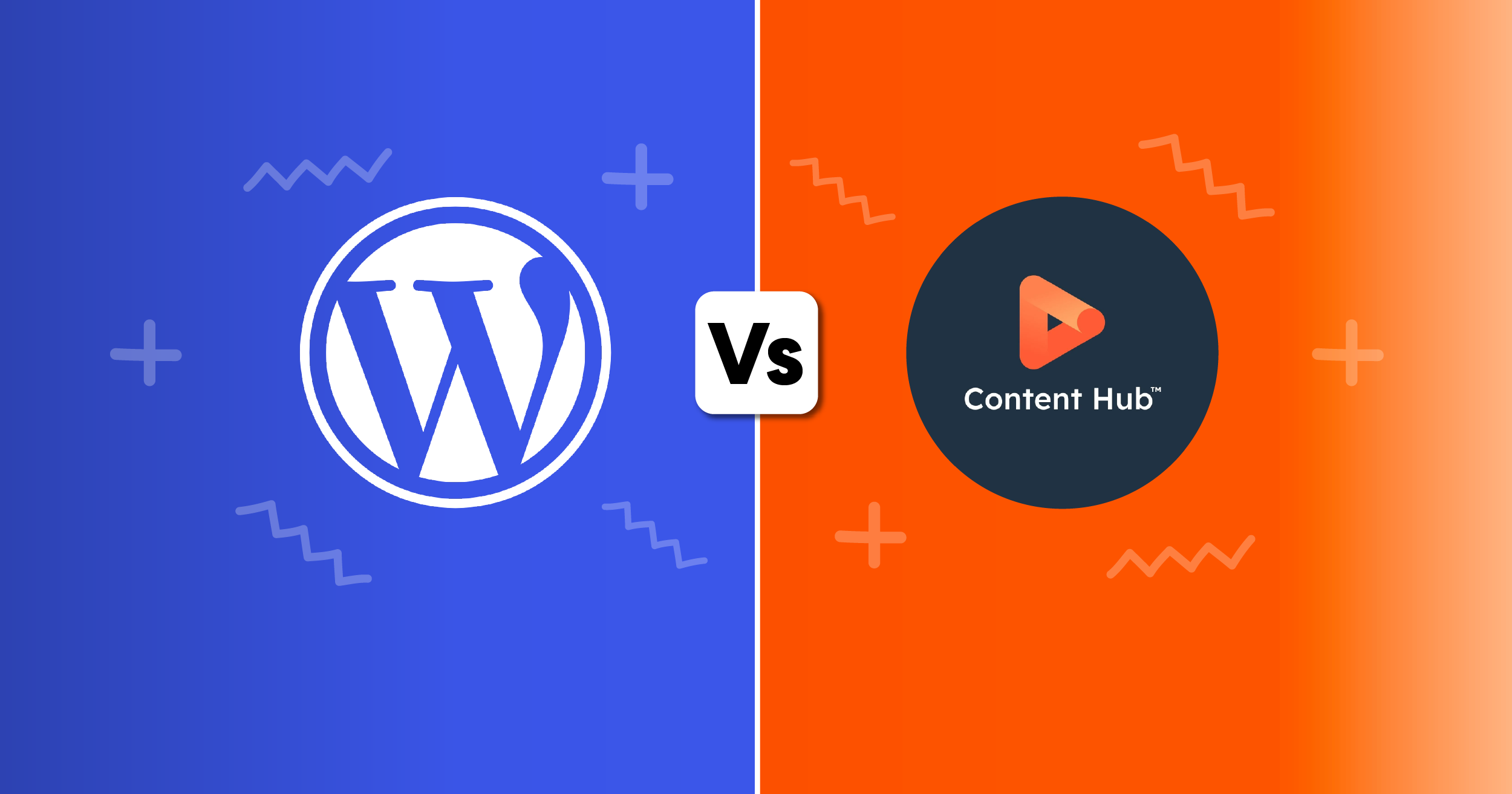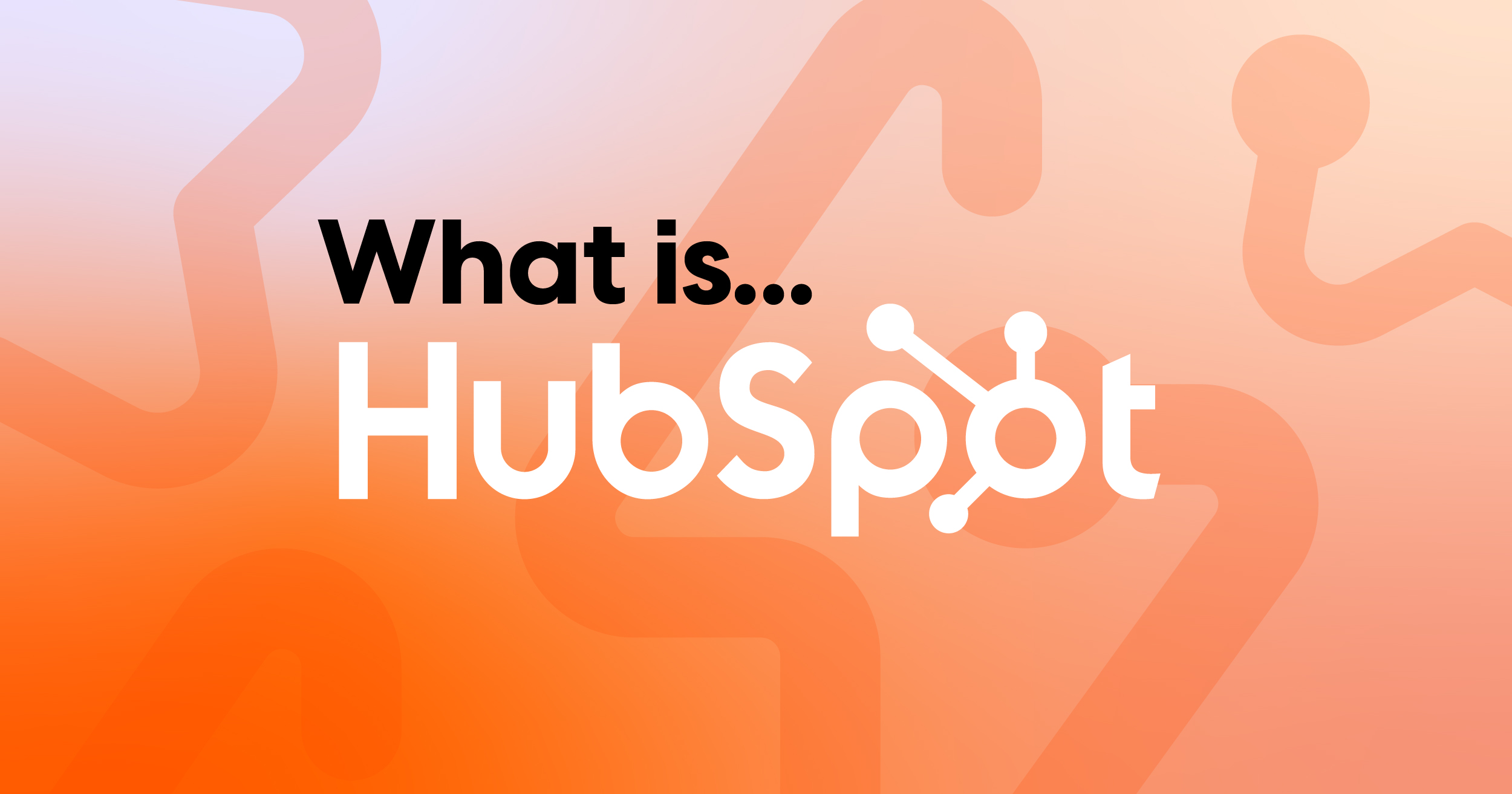
WordPress vs Content Hub (HubSpot)
How to pick the right platform for your business: Both WordPress and Content Hub are powerful choices for building websites. Both platforms have extensive resources to fulfil business needs. To find the best solution base your decision around your business goals. In this post we'll give you a quick comparison to help you decide which platform is the best fit for your business.
Jump menu:
- Choosing the right CMS - What are your business objectives?
- What is WordPress?
- WordPress: Pros & Cons
- What is Content Hub (HubSpot)?
- HubSpot: Pros & Cons
- Budgets and ROI
![]()
"First, consider your long term goals and align them with the capabilities of each platform. This way, you're laying the groundwork for a successful online presence that can drive growth and accelerate with scalability." Holly Hamilton, Marketing and Communications Manager
Holly Hamilton, Marketing and Communications Manager
from Modern Visual.![]()

Choosing the right CMS: HubSpot Content Hub vs WordPress
When deciding between Content Hub and WordPress for your website, the front-end capabilities are largely comparable. Both platforms allow you to create complex, visually appealing layouts and user experiences. The key distinction lies in the underlying technology: SaaS (Software as a Service) for HubSpot Content Hub and Open Source for WordPress.
First, decide what’s relevant for your business.
Ask yourself:
Business Objectives:
- What do you want your website to achieve?
- Who are your target customers?
- How does your website solve their problems?
Team and Resources:
- Do you have a technical team or will you outsource?
- What are your team's skills and preferences?
Technology:
- Will the new website work with your current systems?
- Are there any performance or scaling concerns?
- Do you need integrations (e.g., CRM, marketing)?
Maintenance:
- How much time can you dedicate to website updates?
- What are your hosting and security needs?
Outsourcing:
- How much of the website work will be done by others?
- This affects budget and finding the best solution.

What is WordPress?
WordPress is a popular open-source content management system (CMS) used to create and manage websites. It was originally designed for blogging but has evolved to support various types of websites, from personal blogs to large scale e-commerce stores.
Key features and benefits of WordPress include:
- Self hosted: You're responsible for hosting and maintaining the platform, including updates, security and performance optimisation.
- Ease of use: WordPress is known for its user friendly interface, making it accessible to non-technical users to manage their websites.
- Customisation: With thousands of themes and plugins available, you can easily customise the look and feel of your WordPress website to match your brand and style.
- Flexibility: WordPress can be used to create a wide variety of websites, from simple blogs to complex online stores and membership sites.
- SEO friendly: WordPress is designed with search engine optimisation (SEO) in mind, making it easier for your website to rank higher in search engine results.
- Large community: WordPress has a vast and active community of users and developers, providing support, resources and plugins.
- Cost effective: Typically involves upfront costs for hosting, domain names and potentially premium themes or plugins.
WordPress
- Pros:
- Vast ecosystem: Offers a wide range of plugins and themes for customisation. Up to 58,000 plugins, free and paid themes, offering a huge variety of pre-built solutions.
- Open-source: Free to use and highly customisable. Giving you unique choices on how you invest in your website.
- Large community: Extensive community support and resources available.
- Suitable for: Blogs, personal websites, small businesses and large enterprises.
- Cons:
- Requires more technical knowledge: May require more effort to set up and maintain compared to HubSpot.
- Security: Can be vulnerable to security threats if not properly maintained.
- Plugin Maintenance: Can become challenging when you have a large number of plugins that require maintenance, if not integrated correctly they can affect the speed of your site.
Overall, WordPress is a powerful and versatile tool for creating and managing websites. Its ease of use, flexibility and extensive community make it a popular choice for individuals and businesses alike.
What is HubSpot's Content Hub?
HubSpot Content Hub and CMS (Content Management System) is a platform designed specifically for businesses to create and manage their websites. It's part of the larger HubSpot CRM platform, which offers a suite of marketing, sales and customer service tools.
HubSpot Content Hub is an all-in-one content marketing software that helps businesses create, manage and optimise content across various channels. It is a powerful tool that can help businesses improve their online visibility, generate leads, and drive sales.
HubSpot Content Hub, formerly known as HubSpot CMS now offers a diverse range of features for creating marketing content. It's not just a CMS platform, but now offers enhanced marketing tools.
Key features of HubSpot Content Hub include:
- AI-powered features: Content Hub incorporates AI-powered tools for tasks like content generation, translation and optimisation.
- Customer Journey Focus:Content Hub is designed to help marketers create and manage content that aligns with the entire customer journey, from awareness to advocacy.
- Streamlined Workflow: Content Hub offers a more streamlined workflow for creating, managing, and publishing content.
- Content creation and management: Easily create and manage content for your website, blog, landing pages, gated content and social media channels.
- Analytics and reporting: Track the performance of your content and measure its impact on your business goals.
- Managed Service: HubSpot hosts and maintains the platform, ensuring updates, security patches and performance optimisation are handled automatically.
- Drag-and-drop interface: Makes it easy to create and edit website pages without needing to know HTML or CSS.
- SEO optimisation: Built-in tools to help improve your website's search engine ranking, with recommendations.
- A/B testing: Allows you to test different versions of your website to see which performs better.
- Marketing automation integration: Automate tasks such as email marketing, social media posting and lead nurturing. Content Hub works seamlessly with other HubSpot tools for a cohesive marketing strategy.
- Performance optimisation: Ensures your website loads quickly and efficiently.
- Scalability: Can handle growing traffic and website complexity.
HubSpot Content Hub is particularly well-suited for businesses that:
- Need a user-friendly platform to manage their website.
- Want to integrate their website with other marketing tools.
- Prioritise SEO and website performance.
- Need a platform that can scale as their business grows.
- Want to align content creation with Marketing, Sales and service teams.
Pros:
- All-in-one marketing platform: Integrate features like CRM, email marketing, and marketing automation. If you're already using HubSpot's other Hubs, it makes more sense to seamlessly integrate HubSpot Content Hub.
- User-friendly interface: Easy to use, even for those without technical expertise.
- Built-in SEO tools: Offers SEO features to help improve search engine rankings.
- Suitable for: Businesses that need a comprehensive marketing platform.
- Dedicated support teams: HubSpot solution partners and HubSpot's service teams are dedicated to supporting your business with all operational aspects. You have a deep support system that will help trouble shoot, design and develop your website and integrations as needed.
Cons:
- Customisation: You have many pre-built templates available to you, that enable drag and drop editing. However when you want to customise HubSpot further you will need to use code. This comes with less flexibility compared to WordPress, as you will need some technical expertise to build custom modules, or outsource external teams. Once you have built the custom modules, you are able to edit your website with drag and drop features and return to a simplified process.
- Integrations: While HubSpot has over 1000 apps to integrate with HubSpot, WordPress has over 58,000 plugins. There are many viable solutions for HubSpot integrations, however if you don't find a solution that fits your exact needs, you will need to build custom integrations and work with a HubSpot Solutions Partner.

Ultimately, the best choice for you depends on your specific needs, budget and technical expertise.
Consider factors like the complexity of your website, your marketing goals and the level of support you require when making your decision.
|
Feature |
WordPress |
HubSpot Content Hub |
|
ROI |
Can be high with effective SEO and content strategy, but may require more initial investment and ongoing maintenance. |
Often offers a quicker ROI due to built in marketing tools and a user friendly interface, but initial costs can be higher. |
|
Costs |
Generally lower upfront costs, but can increase with premium themes, plugins and ongoing maintenance. |
Higher initial costs, but often includes bundled marketing tools and support, potentially reducing long term expenses. |
|
Budget |
Suitable for businesses with limited budgets, but may require additional investments in plugins and support. |
More suitable for businesses with larger marketing budgets, as it offers a comprehensive solution. Made for holistic solutions that integrate Marketing, Sales and Service operations. |
View HubSpot Content Hub Pricing here
The decision between HubSpot Content Hub and WordPress depends on your specific needs and priorities.
Choose HubSpot Content Hub when you prefer:
- A cloud-based SaaS solution
- Built-in features and minimal plugin requirements
- All-in-one Marketing, Sales and Service approach.
- A managed platform with automatic updates and security
- Seamless integrations, customisation and alignment with departments.
Choose WordPress when you prefer:
- An open-source platform with extensive customisation options
- A vast ecosystem of plugins and themes
- More control over your website's technical aspects
Don't stop now. Keep learning
 What is HubSpot? A Complete Guide for Enterprise Businesses
If you’ve ever felt like your marketing, sales and service tools are scattered across too many...
What is HubSpot? A Complete Guide for Enterprise Businesses
If you’ve ever felt like your marketing, sales and service tools are scattered across too many...
 How to clean data in Excel before Switching CRMs
Excel can be a powerful tool for cleaning data before migrating to a CRM system. Many businesses...
How to clean data in Excel before Switching CRMs
Excel can be a powerful tool for cleaning data before migrating to a CRM system. Many businesses...
 WordPress vs Content Hub (HubSpot)
How to pick the right platform for your business: Both WordPress and Content Hub are powerful...
WordPress vs Content Hub (HubSpot)
How to pick the right platform for your business: Both WordPress and Content Hub are powerful...



